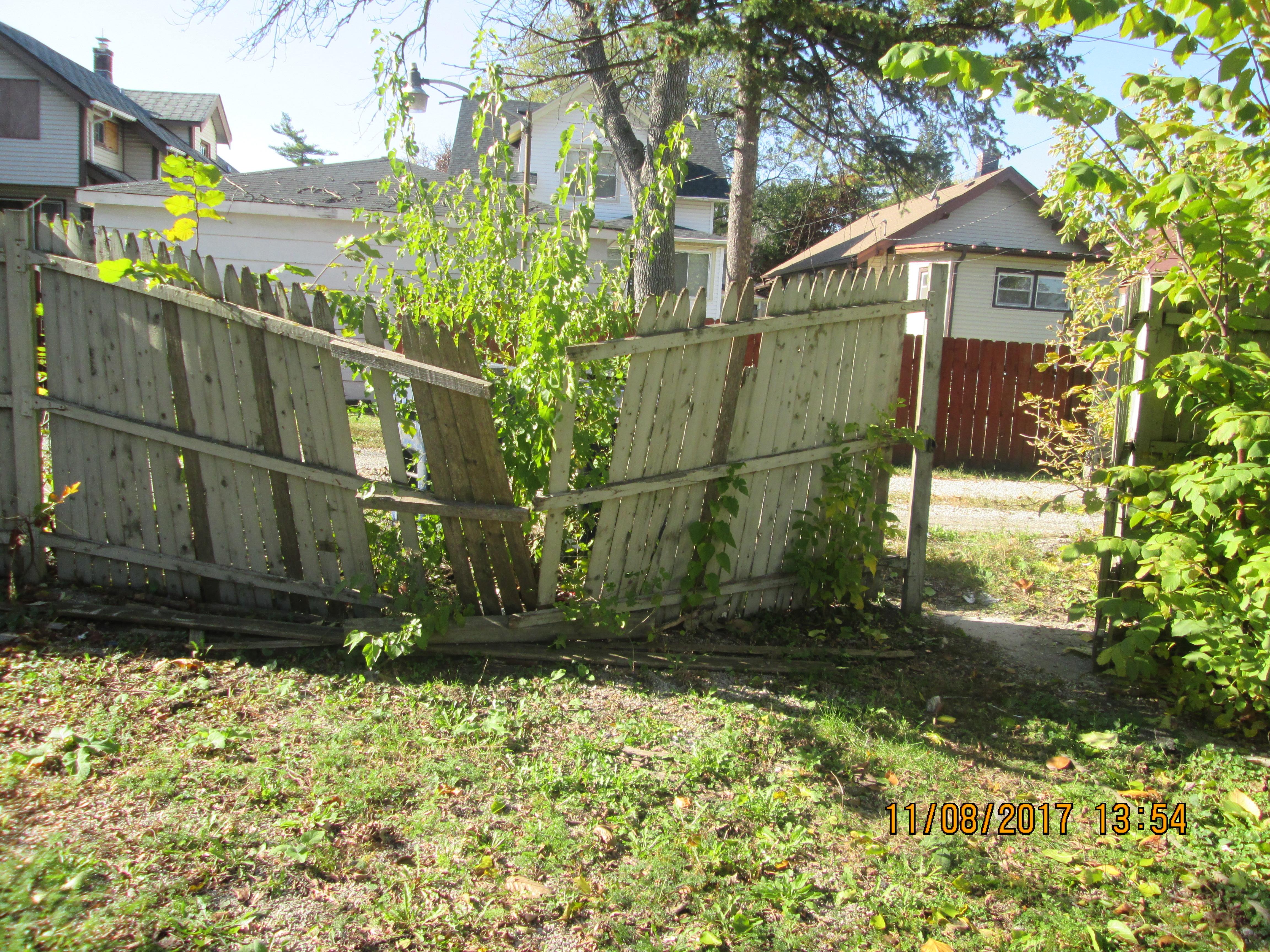Deutsche Bank, Ocwen Financial, and Altisource Accused of Racial Discrimination in 30 U.S. Metro Areas
FOR IMMEDIATE RELEASE
February 1, 2018
Contact: Jessica Aiwuyor | (202) 898-1661 | jaiwuyor@nationalfairhousing.org
National Fair Housing Alliance and 19 Civil Rights Groups File Federal Lawsuit Over Neglected Foreclosures in Communities of Color
WASHINGTON, D.C. — Today, the National Fair Housing Alliance (NFHA) and 19 fair housing organizations from across the country filed a housing discrimination lawsuit in federal district court in Chicago, IL against Deutsche Bank; Deutsche Bank National Trust; Deutsche Bank Trust Company Americas; Ocwen Financial Corp.; and Altisource Portfolio Solutions, Inc. Ocwen and Altisource are the servicer and property management company responsible for maintaining and marketing a large number of Deutsche Bank’s properties.
NFHA filed this lawsuit on the first day of Black History Month to highlight how neglected bank-owned homes hurt African American communities. The lawsuit alleges that Deutsche Bank purposely failed to maintain its foreclosed bank-owned homes (also known as real estate owned or “REO” properties) in middle- and working- class African American and Latino neighborhoods in 30 metropolitan areas, while it consistently maintained similar bank-owned homes in white neighborhoods. The data presented in the federal lawsuit, which is supported by substantial photographic evidence, shows a stark pattern of discriminatory conduct by Deutsche Bank/Ocwen/Altisource in the maintenance of foreclosed homes.
The poor maintenance of homes in communities of color resulted in these homes having wildly overgrown grass and weeds, unlocked doors and windows, broken doors and windows, dead animals decaying, and trash and debris left in yards. Deutsche Bank/Ocwen/Altisource are paid and under contract to provide routine maintenance and marketing to these bank-owned homes. This includes regular lawn mowing, securing a home’s windows and doors, covering dryer vent holes and other holes to keep animals and insects from nesting, keeping the property free of debris, trash, branches and weeds, and complying with nuisance abatement ordinances in each city.


The lawsuit is the result of a multi-year investigation undertaken by NFHA and its fair housing agency partners beginning in 2010. “We chose to first file administrative complaints with HUD against Deutsche Bank, expecting the bank to review our evidence and implement changes to secure, maintain, and market its bank-owned homes in communities of color to the same standard it did in white neighborhoods,” said Shanna L. Smith, President & CEO of NFHA. “However, even after meeting with Deutsche Bank’s legal counsel in April 2015 and sharing photographs illustrating the significant differences in treatment between homes in African American/Latino and white neighborhoods, we saw no improvement,” Smith continued. NFHA also met with representatives from Ocwen and Altisource and shared photographs of problems. No improvements with routine maintenance and marketing issues were identified following those meetings, so NFHA and the 19 fair housing agencies amended the HUD complaint to add these companies.
The lawsuit points out that Deutsche Bank-owned homes in predominantly white working- and middle-class neighborhoods are far more likely to have the lawns mowed and edged regularly, invasive weeds and vines removed, windows and doors secured or repaired, litter, debris and trash removed, leaves raked, and graffiti erased from the property.
NFHA and the 19 partner fair housing agencies collected evidence at each property on over 35 data points that were identified as important to protecting and securing the homes. Investigators also took and closely reviewed nearly 30,000 photographs of Deutsche Bank-owned homes to document the differences in treatment between communities of color and white neighborhoods.
NFHA conducted repeat visits to several Deutsche Bank-owned homes over the course of the investigation. However, investigators found little or no improvement in maintenance and often found the homes in worse condition.
The poor appearance of Deutsche bank-owned homes in middle- and working-class neighborhoods of color destroys the homes’ curb appeal for prospective homebuyers and invites vandalism because the homes appear to be abandoned. Additionally, the blight created by Deutsche Bank/Ocwen/Altisource results in a decline in home values for African American and Latino families who live next door or nearby, deepening the racial wealth gap and inequality in America.
This is not a new problem for Deutsche Bank. In June 2013, Deutsche Bank, as trustee and owner of record of foreclosed homes, settled a lawsuit with the City of Los Angeles for $10 million after it was accused of allowing hundreds of foreclosed properties to fall into slum conditions, leading to the destabilization of whole communities. In the past, Deutsche Bank has taken the position that as a trustee of the loans that resulted in foreclosure, it has no legal obligation to maintain the properties once they come into Deutsche Bank’s possession. And yet, Deutsche Bank agreed to settle the City’s claims and required its preservation maintenance companies to pay most of the $10 million to resolve that case. Under the Fair Housing Act, trustees are clearly liable for discriminatory activity to the same extent as any other owner of property.
NFHA alleges that Deutsche Bank, Ocwen, and Altisource’s intentional failure to correct their discriminatory treatment in African American and Latino neighborhoods—the same communities hardest hit by the foreclosure crisis—can only be seen as systemic racism. Smith stated, “The intentional neglect of bank-owned homes in communities of color devalues the property and the lives of the families living in the neighborhoods around them. The health and safety hazards created by these blighted Deutsche Bank-owned homes affect the residents, especially the children, living nearby.” Smith continued, “It is important to note that Deutsche Bank, Ocwen, and Altisource were all paid to secure, maintain, and market these homes. No one is asking for special treatment of these bank-owned homes; we simply ask that these companies provide the same standard of care for all bank-owned homes, regardless of the racial or ethnic composition of the neighborhood in which they are located.”
In 2011, NFHA released the first of three reports documenting poor routine maintenance of foreclosed homes in African American and Latino neighborhoods as compared to foreclosures in white neighborhoods. Many photographs of poorly-maintained bank-owned homes were shared. Each report recommended best practices to avoid Fair Housing Act violations. “We truly hoped the release of the reports, which included advice on how to comply with civil rights laws, would change the banks’ behavior,” said Smith. “However, only a few banks reached out for meetings to develop best practices, and Deutsche Bank was not one of them.” The second report was released in 2012 and the last one in 2014.
The HUD complaint was filed and then amended to add additional cities and new evidence on the following dates: February 26, 2014; April 30, 2014; August 7, 2014; January 22, 2015; August 5, 2016; February 14, 2017; and July 26, 2017.
NFHA and its member agencies are represented by Soule, Bradtke & Lambert and Relman, Dane & Colfax PLLC.
The Fair Housing Act makes it illegal to discriminate based on race, color, national origin, religion, sex, disability, or familial status, as well as on the race or national origin of residents of a neighborhood. This law applies to housing and housing-related activities, which include the maintenance, appraisal, listing, marketing, and selling of homes.
National Fair Housing Alliance
Founded in 1988, the National Fair Housing Alliance is a consortium of more than 220 private, non-profit fair housing organizations, state and local civil rights agencies, and individuals from throughout the United States. Headquartered in Washington, D.C., the National Fair Housing Alliance, through comprehensive education, advocacy, enforcement programs, and neighborhood-based community development programs provides equal access to apartments, houses, mortgage loans, and insurance policies for all residents in the nation.
The fair housing organizations joining NFHA in filing the complaint include:
HOPE Fair Housing Center
202 W. Willow Ave, Suite 203
Wheaton, IL 60185
Open Communities
990 Grove Street, Suite 500
Evanston, IL 60201
South Suburban Housing Center
18220 Harwood Avenue
Homewood, IL 60430
Housing Opportunities Made Equal of VA
626 East Broad Street #400
Richmond, VA 23219
Toledo Fair Housing Center
432 North Superior Street
Toledo, OH 43604
Fair Housing Continuum
571 Haverty Ct., Suite W
Rockledge, FL 32955
Greater New Orleans Fair Housing Action Center
404 S. Jefferson Davis Pkwy
New Orleans, LA 70119
Denver Metro Fair Housing Center
3280 Downing Street, Suite B
Denver, CO 80205
Metropolitan Milwaukee Fair Housing Council
759 N. Milwaukee Street, Suite 500
Milwaukee, WI 53202
Fair Housing Center of West Michigan
20 Hall Street SE
Grand Rapids, MI 49507
The Miami Valley Fair Housing Center
505 Riverside Drive
Dayton, OH 45405
Housing and Research & Advocacy Center
2728 Euclid Avenue, Suite 200
Cleveland, OH 44115
Fair Housing Center of the Greater Palm Beaches
1300 W. Lantana Road, Suite 200
Lantana, FL 33462
Fair Housing Center of Central Indiana
445 N. Pennsylvania Street, Suite 811
Indianapolis, IN 46204
Central Ohio Fair Housing Association
175 South 3rd Street, Suite 580
Columbus, OH 43215
Housing Opportunities Project for Excellence, Inc.
11501 NW 2nd Avenue
Miami, FL 33168
Connecticut Fair Housing Center
221 Main Street, 4th Floor
Hartford, CT 06106
North Texas Fair Housing Center
8625 King George Drive, Suite 130
Dallas, TX 75235
Fair Housing Advocates of Northern California
1314 Lincoln Avenue, Suite A
San Rafael, CA 94901
The work that provided the basis for this publication was supported, in part, by funding under a grant with the U.S. Department of Housing and Urban Development. The author and publisher are solely responsible for the accuracy of the statements and interpretations contained in this publication. Such interpretations do not necessarily reflect the views of the Federal Government.
